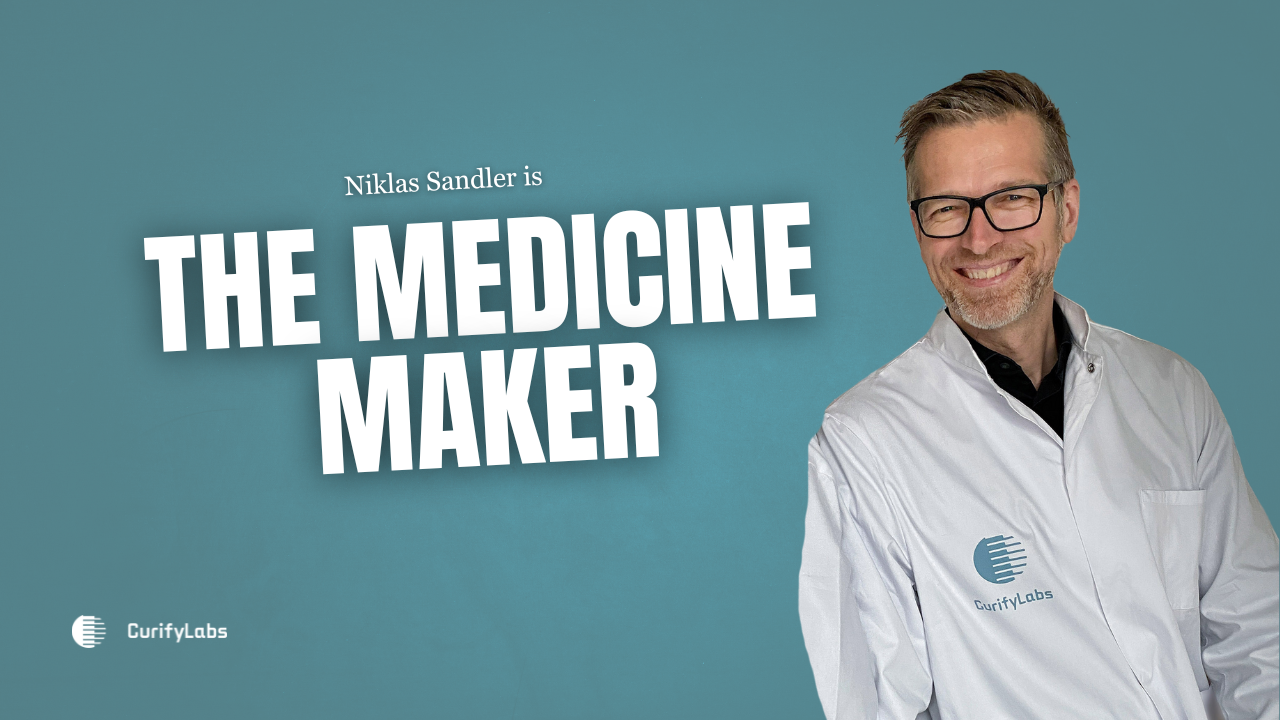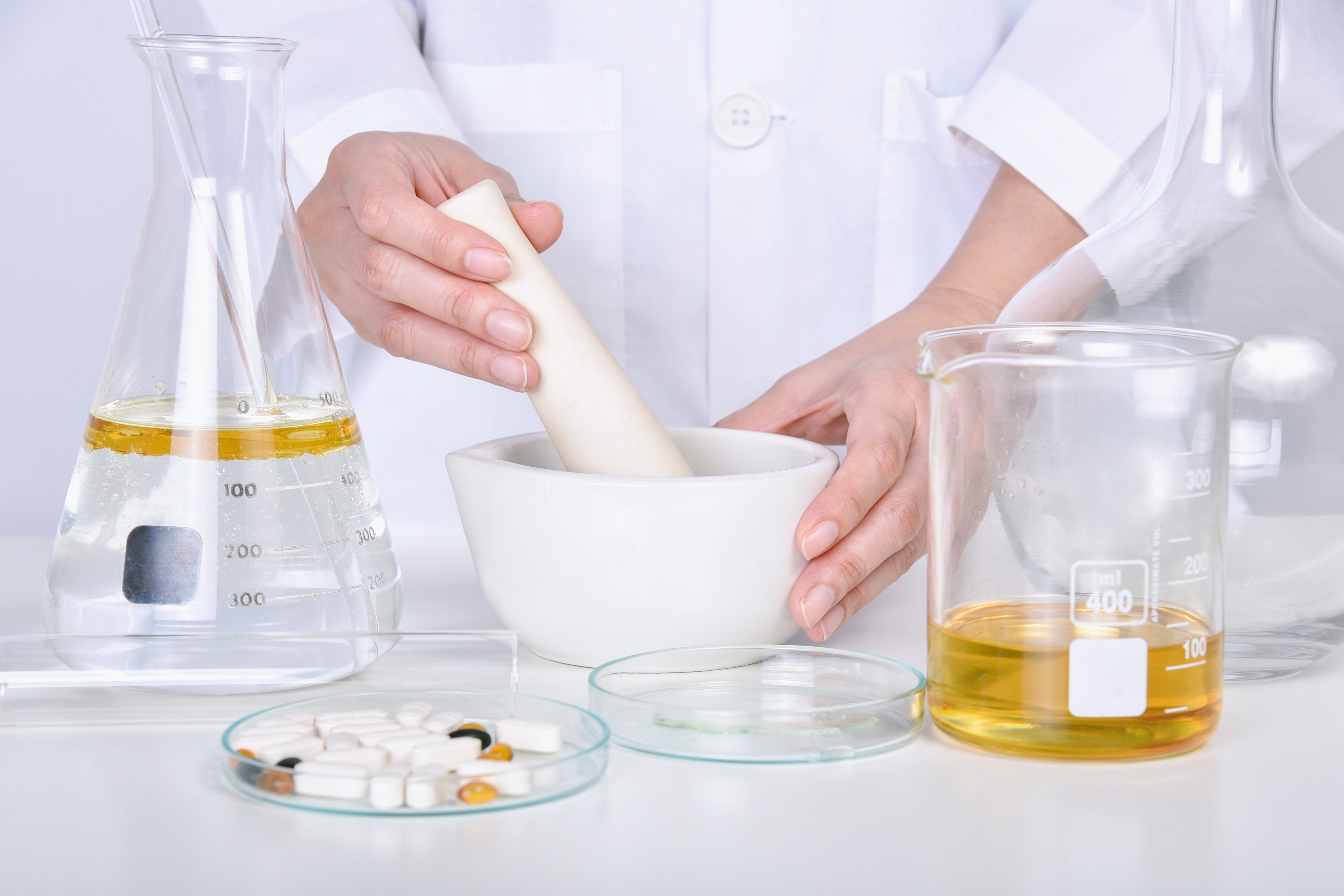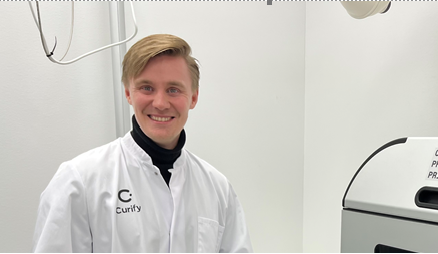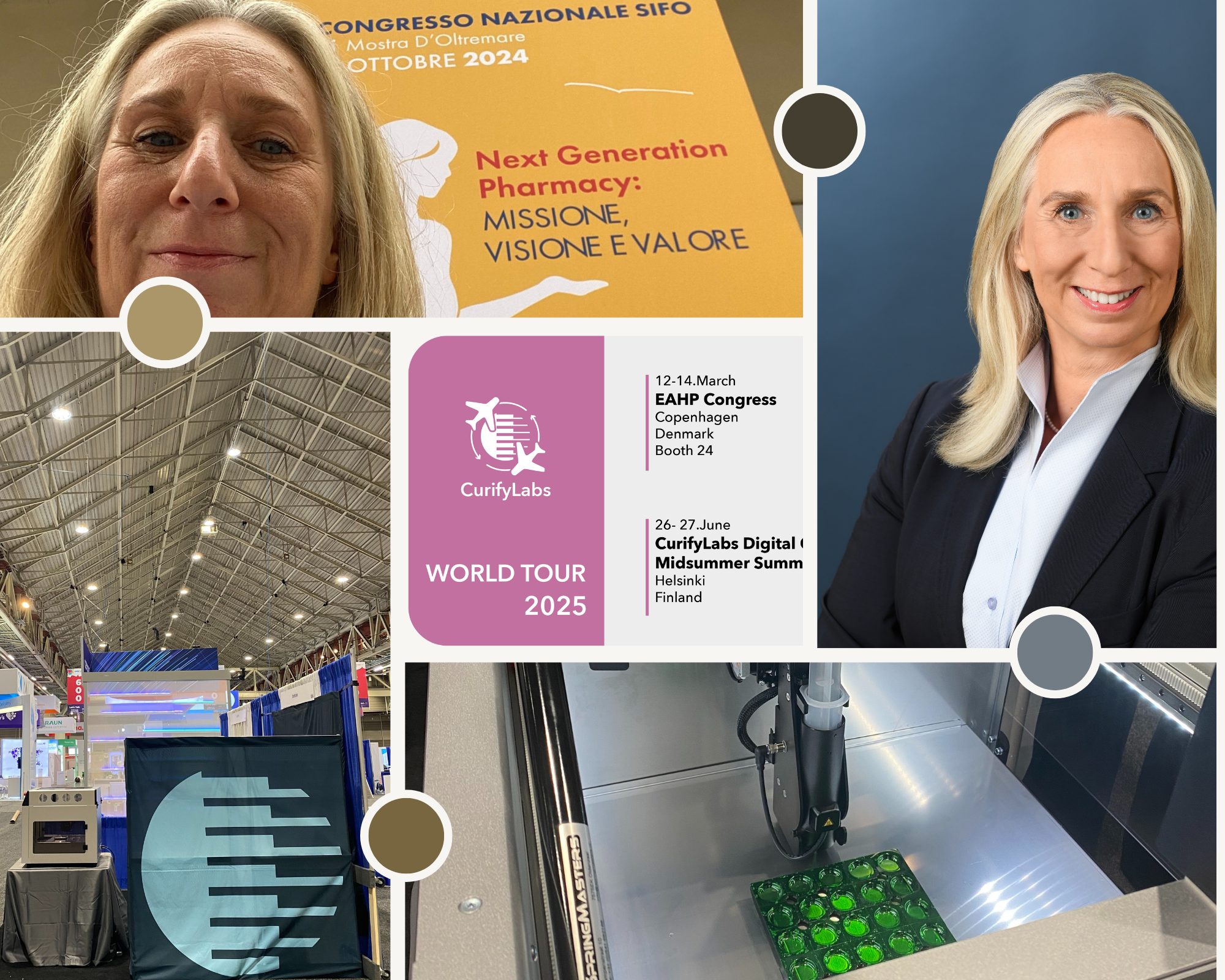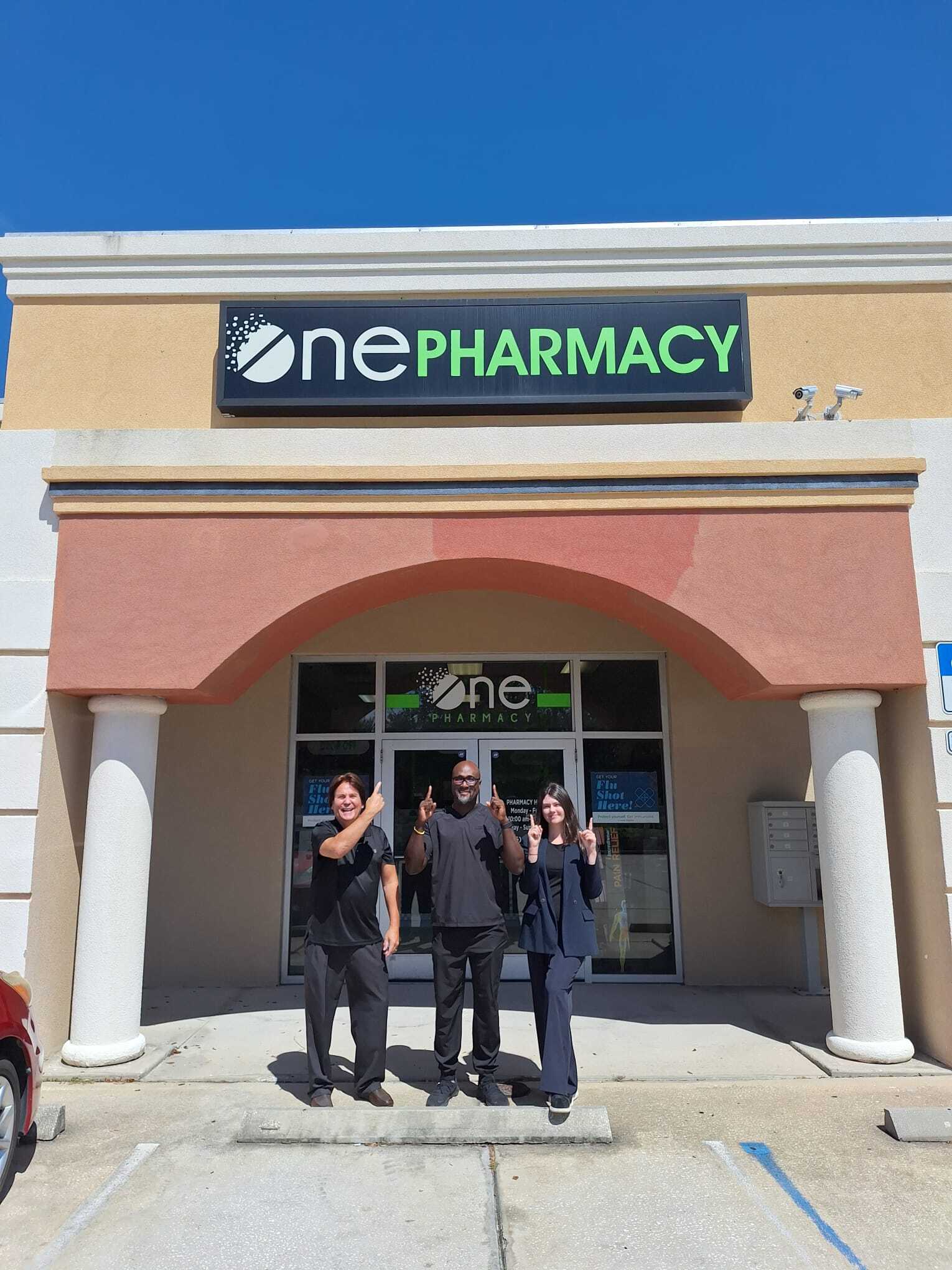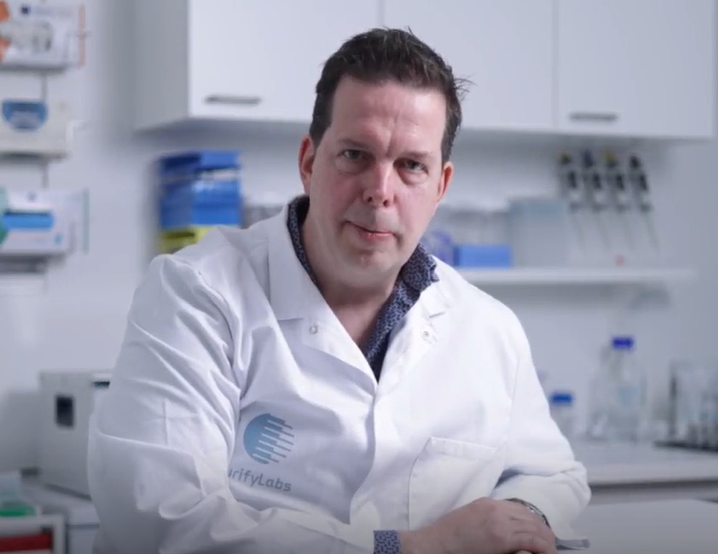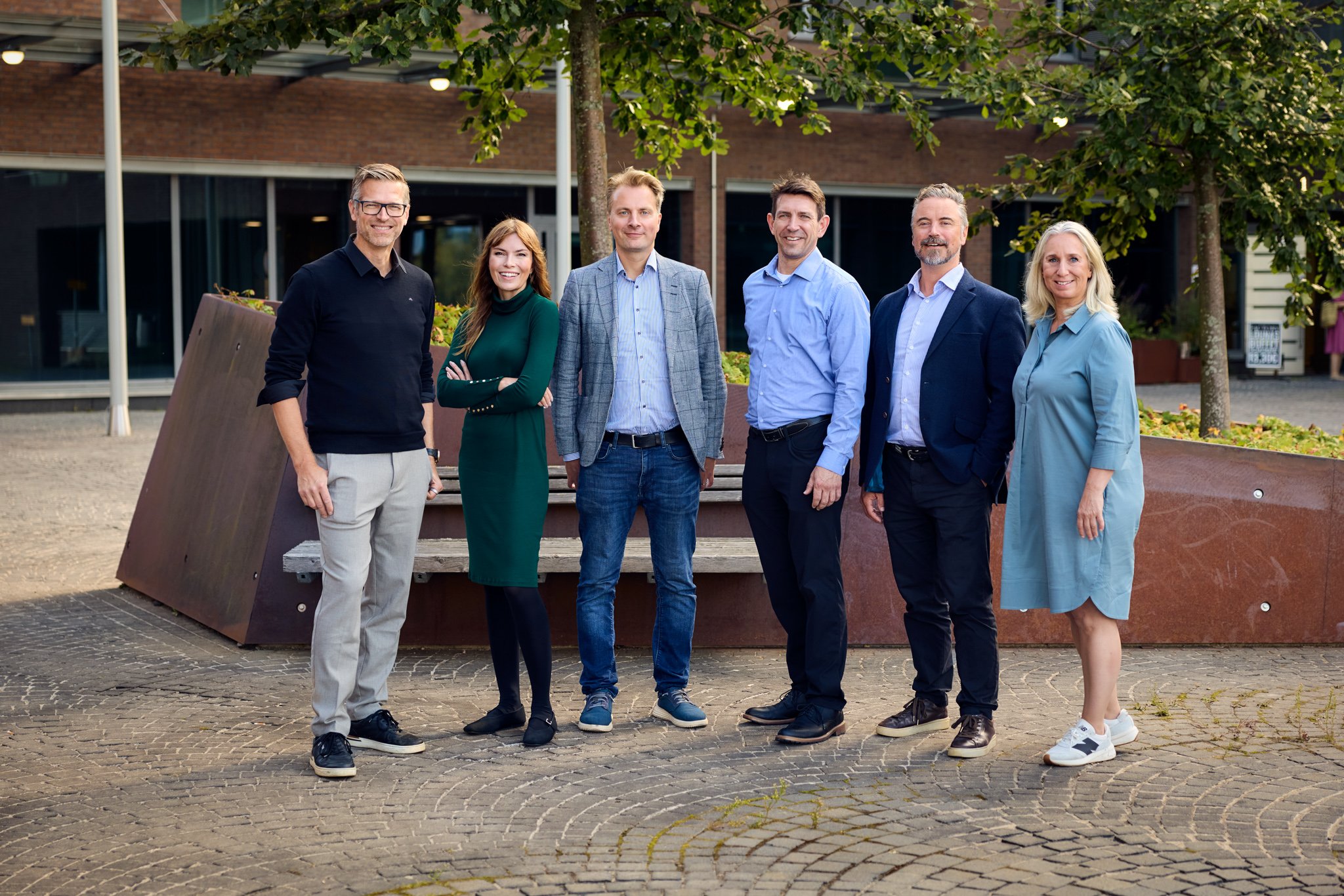Hoiva & Terveys is a Finnish magazine focused on healthcare and social services and Minna Pauliina Kataja wrote this article about CurifyLabs:
"CurifyLabs, has made entry into human healthcare with its 3D-printed medication technology since last November. This innovation, now adopted by several European pharmacies and a few in Finland, offers a unique solution in tailoring medications to individual patient needs through complete process automation.
Charlotta Topelius, co-founder, reveals CurifyLabs' plans to break into the US market. The company's international collaborations, including partnerships with 30 pharmacies across Germany, the Netherlands, and Switzerland, underline its commitment to global operation.
A significant advantage of this technology is its application in pediatric care. Many medications lack suitable dosages for children, a challenge CurifyLabs is addressing. The technology also benefits other groups, such as cancer patients needing specific dosages, the elderly, and those with multiple illnesses, offering easy-to-swallow formats and allergen-free options. Future prospects include combining multiple medications and creating child-friendly pill shapes.
Traditionally, pharmacists have had to manually prepare customized medications, a long-standing practice. Now, this process can be automated. Extemporaneous medications have their own regulations. This allows for their production in situations where a licensed medication is not available. A pharmacy with a medication manufacturing license can prepare a medication on-site based on a doctor's prescription if the ready-made medication is not available," explains Topelius.
Seeking Cost Benefits with the Technology
The company's solution combines four different technologies: software, excipients & active ingredients, hardware and quality assurance. Active ingredients are added to the medicinal substances in the pharmacy. The entire process can be automated from beginning to end. Curifylabs recently acquired the intellectual property rights for Mehta Heinon's 3D printing. According to Charlotta Topelius, this technology especially seeks to speed up automation. Patients needing customized medications, pharmacists, pharmacies, and nursing staff benefit from this speed. "The automated manufacturing method saves time and costs, and also avoids errors. The technology saves a pharmacist an average of half an hour per prescription, which is about ten euros on average wages. Our customers have estimated that the technology pays for itself in about two years, but this depends a lot on the volume of production."
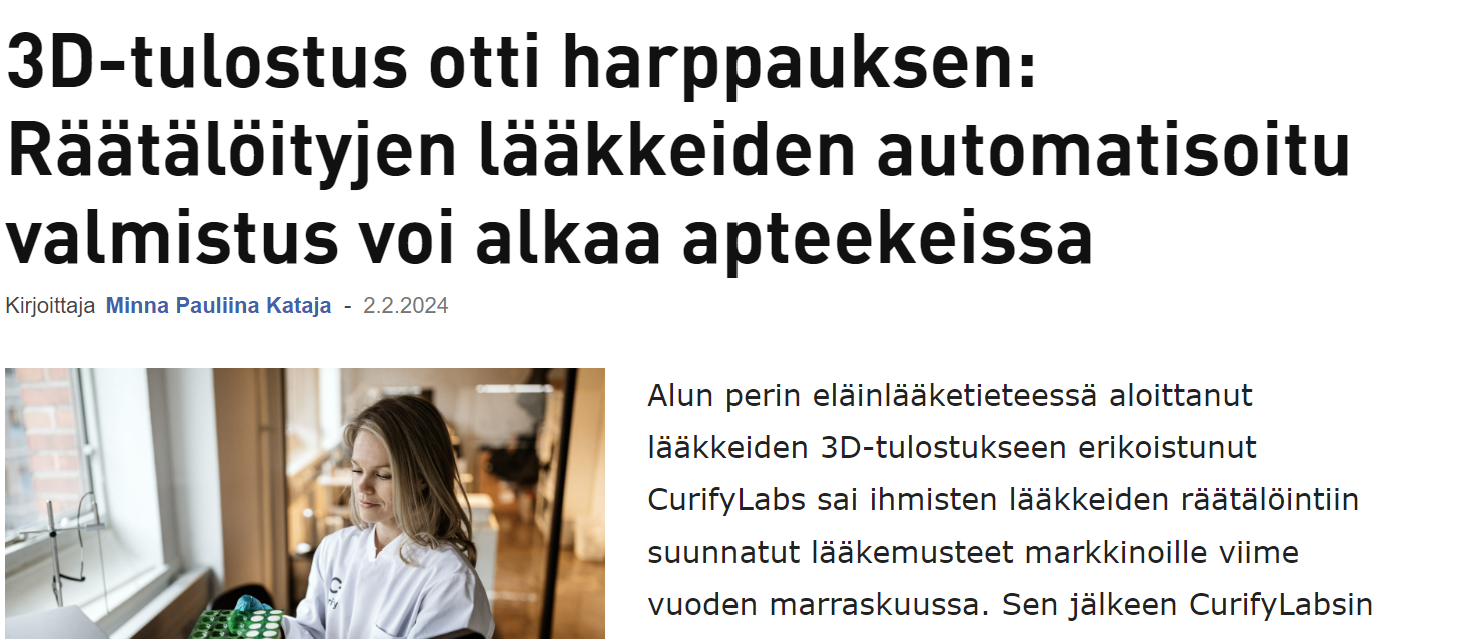
There is a severe shortage of pharmacists, and this technology is one way to address it. By automating time-consuming processes, pharmacists have more time for other tasks. "Our technology also brings quality assurance to each customized medication, which is a value in itself. Rapid automation streamlines medication treatment in hospitals, for example, nurses do not have to separately split tablets. This practical technology has many possibilities, and its benefits can be particularly highlighted during drug shortages. Automated quality assurance can avoid errors, which is important, especially when customized medications are given to sensitive patient groups. They have the right to receive their medication quickly and safely."
Read the original text in Hoiva&Terveys here: https://hoivajaterveys.fi/3d-tulostus-otti-harppauksen-raataloityjen-laakkeiden-automatisoitu-valmistus-voi-alkaa-apteekeissa/

